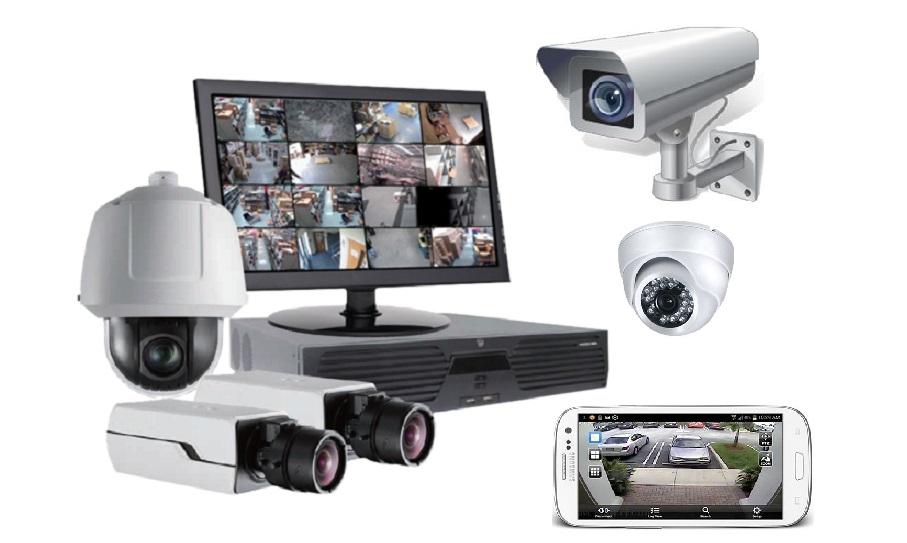In today's digital age, security is a top priority for both homes and businesses. With advancements in technology, there are now numerous options available when it comes to security cameras. One popular choice is the DVR camera system, which offers a range of benefits for users looking to enhance their security measures. In this blog post, we will explore why DVR camera systems are the best choice for security and how they can help protect your property and loved ones.
Understanding DVR Camera Systems
A DVR camera system operates by capturing video footage and saving it in a digital format on various storage mediums, such as hard drives, USB drives, or SD cards. This setup involves multiple cameras connected to a single DVR unit, which processes and records the video streams from each camera. Unlike traditional analog systems that record footage directly onto tapes, DVR systems digitize the video data, allowing for more efficient storage and retrieval processes. This digitization also supports higher video quality and easier management of the surveillance footage.
DVR systems are versatile in their application, serving as the backbone for security in diverse settings, from residential properties to commercial establishments and public areas. The architecture of these systems enables simultaneous monitoring and recording from several cameras, facilitating comprehensive surveillance coverage across different locations. Users can typically customize their setup by selecting the number and types of cameras to connect, tailoring the system to meet specific security requirements.
The technology behind DVR camera systems supports various functionalities that enhance security surveillance. These systems can be configured for continuous recording, scheduled recording based on time, or triggered recording in response to motion detection. Such flexibility ensures that users can optimize storage space while focusing on capturing crucial video footage. Video data recorded onto the DVR can be searched, accessed, and backed up with ease, making it straightforward for users to manage their security footage and respond to security events as necessary.
Key Advantages of Using DVR Systems
One significant benefit of DVR camera systems is their expansive storage capacity. With built-in hard drives, these systems can securely hold a vast quantity of video data for lengthy durations, eliminating concerns about running out of space during crucial monitoring periods. This feature is particularly advantageous for users who require continuous surveillance, as it allows for the archiving and review of footage from weeks or even months prior, ensuring no critical piece of evidence is overlooked.
Moreover, the advent of modern DVR systems has introduced the convenience of remote viewing. Users can effortlessly access their surveillance feeds from any location through smartphones, tablets, or computers. This functionality not only enhances the flexibility of monitoring but also provides peace of mind to individuals who need to keep an eye on their properties while away. The ability to remotely view live or recorded footage ensures that users are always in the loop, regardless of their physical location.
Additionally, DVR camera systems are equipped with a suite of advanced technological features designed to bolster security. Motion detection capabilities enable the system to alert users of any unexpected movement, making it easier to react swiftly to potential threats. Night vision and digital zoom functionalities ensure the capture of clear, detailed images under varying lighting conditions, contributing to a more robust and effective surveillance solution. These features collectively enhance the capability of DVR systems to offer comprehensive security coverage, day and night.
Selecting the Best DVR Camera System for Your Needs
When navigating the market for a DVR camera system, it’s essential to evaluate a few critical considerations to ensure you choose a system that aligns with your security objectives. Begin by assessing the scope of the area you wish to monitor. This preliminary step is crucial as it influences the number of cameras you'll need and their placement to achieve optimal coverage. Next, delve into the specifications of the cameras, prioritizing resolution and image quality. High-resolution cameras are pivotal for capturing clear, discernible footage, a factor that greatly aids in the identification process during security breaches.
Furthermore, delve into the DVR system's additional features, such as remote viewing capabilities, motion detection, and night vision. These attributes significantly enhance the system's effectiveness by providing flexibility in monitoring, alerting you to unexpected movements, and ensuring clarity in low-light conditions. Each feature contributes to a more dynamic and responsive security setup, catering to varied surveillance needs.
Another vital aspect to consider is the system’s storage capacity. Adequate storage is indispensable for managing the volume of footage generated, especially for setups requiring continuous recording. Assess whether the system allows for expansion through external storage solutions to accommodate future needs, ensuring longevity and adaptability of your security infrastructure.
By meticulously evaluating these factors, you can select a DVR camera system that not only meets your current security requirements but also offers the flexibility to adapt to evolving needs, providing enduring peace of mind.
Installation Tips and Best Practices
Proper installation is crucial for maximizing the security benefits of your DVR camera system. Begin by identifying key areas of your property that require surveillance, such as entrances, exits, and secluded spots. This strategic placement ensures that no critical area is left unwatched. During installation, closely adhere to the guidelines provided by the manufacturer to avoid any operational issues. It's vital to secure wiring and connections robustly to deter potential sabotage or damage.
Maintenance is another important aspect to consider. Regular checks on your system can preempt issues that might compromise security, such as obstructions in the camera's field of view or technical malfunctions. Ensuring that your cameras are always operational and recording clear footage is essential for effective surveillance.
Additionally, making it a habit to review the recorded footage periodically can be immensely beneficial. This not only aids in spotting and rectifying any blind spots in coverage but also helps in identifying suspicious activities early on. By implementing these best practices, you can enhance the protective capabilities of your DVR camera system and maintain a safer environment.

